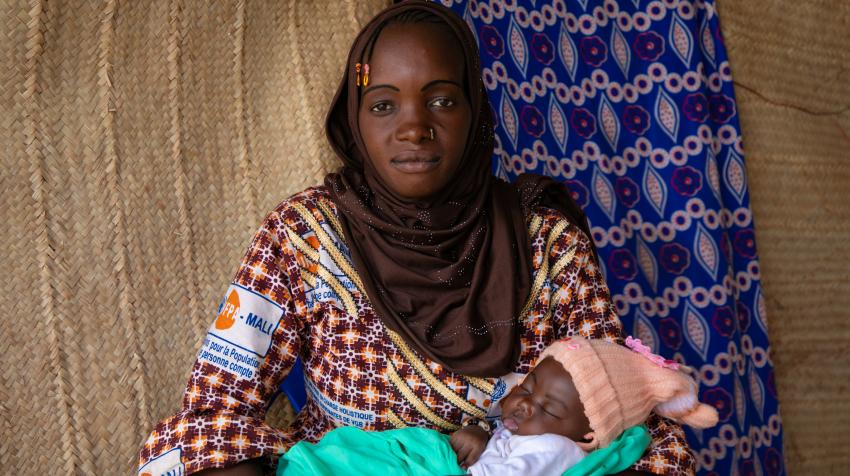May 2014, No. 1 Vol. LI, The 50th Anniversary of the Group of 77 at the UN
The staying power of the United Nations is remarkable. For nearly 70 years, the UN's membership has grown rapidly after newly independent countries joined its ranks. It is encouraging too that no country has felt a strong enough urge to leave the organization in spite of its democratic deficiencies. The composition and working methods of the Security Council, in particular, are sources of discontent for many, as is the failure of the UN to implement certain General Assembly resolutions. Nevertheless, international decision-making has never been as inclusive as it has been in the last few decades, especially in the Assembly, thanks in no small part to the commanding role played by the Group of 77 (G-77), the largest bloc at the UN.
Hovering around 130 members for the last decade, the G-77 comprises a sizable majority of the UN's 193 Member States. Founded 50 years ago—initially with 77 members, which gave the group its name—the numerical strength of this bloc of developing countries has functioned as a counterpoint to the influence of developed countries, which due to their far greater financial resources and ability to fund international organizations, enjoy significant clout as well. Regretfully, the tensions between those who hold the "power of the majority" versus those with the "power of the purse" regularly prevents timely and meaningful consensus on critical issues.
While some seasoned diplomats contend that lack of agreement between developed and developing countries is often more about power than actual ideological differences, it is nevertheless easy to identify opposing perspectives on substance that divide positions taken by the South and the North. UN Member States bring different priorities to the table. Developing countries clearly want the GA to be much more involved in development and global financial issues, while developed countries see the UN in New York mostly as a place to deal with peace, security, and urgent humanitarian issues, arguing that the Bretton Woods institutions and the United Nations Development Programme (UNDP) were specifically established to deal with development. The South tends to counter this argument by observing that these bodies are far too influenced by their biggest donors. For instance, by means of voluntary and earmarked contributions, developed countries have a much stronger say in the functioning of UNDP.
Interestingly, the North-South divide is much less pronounced in the area of human rights, because many countries from the South as well as the North regard respect for human rights as a key condition for a nation's capacity to flourish politically and economically.
Caught in between blocs of Member States with opposing priorities, the UN Secretariat typically will argue that peace and security, development, and human rights are all interlinked, and that each is an equally important pillar of the UN System.
Because of stark and intense differences in North/South priorities, much heralded victories for either side are often short-lived, end up unimplemented, or fall far short of their intended goals. Some early successes of the G-77 were never fully realized. A notable example is the 1970 resolution that resolved that "each economically advanced country will progressively increase its official development assistance to the developing countries and will exert its best efforts to reach a minimum net amount of 0.7 per cent of its gross national product." The United States indicated its resistance from the onset and never intended to reach this goal. And even the small group of countries which have met this target for decades have recently reduced their assistance, or are increasingly including costs related to peacekeeping, humanitarian aid, and even trade missions in their aid calculations. The ongoing global recession is undoubtedly contributing to an overall reduction in development assistance; hitting the most vulnerable developing countries and those that face a reduced demand and price for their commodities twice as hard.
Efforts by richer countries to institute management reforms have also seen limited success. The fate of the GA's 2005 decision to review the UN's 9,000 mandates stemming from resolutions—more than a hundred are added each year—to determine whether any were outdated or duplicative is a typical example. The review immediately met with delaying tactics from developing countries which eventually led to the effort being shelved after a few years of intense negotiations, though officially the UN budget process ended up being blamed because it prevents linking resources with specific mandates. In a similar vein, recent negotiations on system-wide coherence- an effort to improve the coordination and effectiveness of the vast multitude of UN entities—met with major resistance from the South. Simply put, the South distrusts cost-saving and efficiency measures which they regard as veiled attempts to further strengthen the North's hold over the UN. On their part, the biggest donors to the UN—developed countries together roughly contribute three-fourth of the regular budget—feel that the South's reservations are preventing sound governance.
Because of the rapid development and enrichment of a number of developing countries—e.g. Brazil, China, India, among others—a number of diplomats and other players assume that coalitions such as the G-77 are bound to become less relevant or influential in the future. It should be noted, however, that the G-77 has only lost a handful of its members since the 1990s because they joined "the other side." Of these, former G-77 members Cyprus, Malta, and Romania left the G-77 to join the European Union, while Mexico and South Korea left the G-77 after joining the Organisation for Economic Cooperation and Development (OECD). As South Korea explained after leaving the G-77 in 1997, the OECD's ground rules didn't allow it to continue its membership in the G-77.
However, there does not seem to be an official G-77 policy about what has pointedly been referred to as "double dipping." For instance, when Chile joined the OECD in 2010, it decided to remain in the G-77 since it does not consider the OECD a negotiating bloc. But on some issues such as climate change, for example, the two groups regularly take opposing positions. Thus far, efforts to nudge Chile out of the G-77 have been unsuccessful. Nor, evidently, has the OECD insisted on the withdrawal of Chile from the G-77. To date, it is unclear whether Chile's stance is undermining the effectiveness of either the G-77 or OECD. Considering the large size of the coalitions from both the North and South, internal divisions and 'leaks' about particular strategies and positions are probably unavoidable anyway.
Undoubtedly, the notion that the interests of developing countries tend to be marginalized at the UN is the major issue uniting the membership of the G-77, as is the understanding that the development gap between most members of the G-77 and the richer countries has not been significantly bridged. While the North often blames the South itself for lagging behind from a development perspective—identifying bad governance and corruption as the prime causes—developing countries insist that they are primarily held back by the protectionist policies and tariffs of the richer countries that hamper fair trade; their failure to meet financial commitments; and their refusal to agree to substantial reforms to global economic and financial governance.
But, as in any large grouping, internal differences are unavoidable. The 133 members of the G-77 face diverse economic, geo-political, historical, cultural, and religious realities. Especially the specific interests of landlocked, least developed, and small island states were clearly reflected in the group's early positions. Since almost every issue on the G-77's agenda now enjoys its own constituency, it is inherently difficult for the G-77 to be flexible even when compromise might make sense to many of its members. Besides the above mentioned factions, Africa, oil-producing states, countries with extensive forests, emerging economic powers, countries with an anticapitalist agenda, each bring their own priorities to the ultimate shape of the G-77's expansive platform.
In spite of this diversity, when consensus cannot be reached in the General Assembly on issues high on the G-77's agenda, votes indicate that the South acts in unison most of the time. However, on average, 40 developing Member States do not participate in such votes. But one gets the impression that this is not so much an indicator of internal dissent, disinterest, or undue influence from the North, as a question of capacity. Smaller missions simply cannot follow all agenda items equally, and their membership of the G-77 allows them to delegate some decisionmaking to the group.
It is fashionable, especially by Northern governments, to dismiss the General Assembly as a talk-shop that doesn't produce many concrete results. However, any careful or objective consideration of the role of the Assembly in the development of the key pillars of the UN during the last 50 years will reveal that it has been the most effective principal organ in establishing new laws, institutions, organizations, and programs. The G-77 has undoubtedly been indispensable in preventing UN decision-making from being dominated by the biggest powers, or by one-dollar-one-vote processes favored by many in the North. If this had been the only contribution of the G-77, it would merit tremendous praise, for the UN will come apart if it were to become more undemocratic.
The UN Chronicle is not an official record. It is privileged to host senior United Nations officials as well as distinguished contributors from outside the United Nations system whose views are not necessarily those of the United Nations. Similarly, the boundaries and names shown, and the designations used, in maps or articles do not necessarily imply endorsement or acceptance by the United Nations.




